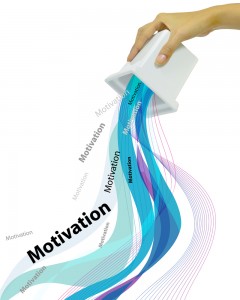
As you’ve probably gathered by now, we Musculoskeletal Elves are pretty keen to promote psychosocial interventions in the management of musculoskeletal disorders (MSDs). In a previous post I looked at behavioural change interventions, such as, motivational interviewing (MI) with individuals with rheumatoid and osteoarthritis. But how effective is MI, as ‘‘a directive, client-centred counselling style for eliciting behaviour change by helping clients to explore and resolve ambivalence’’ (Rollnick & Miller, 1995), with those with a broader range of MSDs? In the hope of answering this question I read the systematic review by Chilton et al (2012) in the journal Psychology, Health & Medicine.
Here’s what they did
A wide range of databases and sources of grey literature were searched and data were extracted and quality assessed independently by two study authors using standardised documentation.
Here’s what they found
Five studies were found that used some form of MI with adult populations: two were for back pain, the others were for chronic pain, fibromyalgia and osteoporosis. Three studies were randomised controlled trials, one a non-randomised trial and one was quasi-experimental. The MI interventions were delivered by either psychologists, nurses or physiotherapists. The delivery method varied: telephone, face to face, assessment/feedback, or within treatment, as did the type of MI: Trans Theoretical Model based motivational counselling, Motivational Enhancement Therapy, Preparation for Pain Management Intervention, exercise-based MI or a ‘ScriptAssist’ Telephonic Counselling Programme. There were also variations with regard to training provider, duration and competency.
The authors concluded

More research is required to determine the effectiveness of Motivational Interviewing in musculoskeletal conditions
In the main MI had positive effects on various domains of interest and treatment outcomes – however, this was not consistent; this was partly a reflection of under-powered studies. In terms of clinical practice, the current evidence is limited, predominantly because of methodological factors and specific applications of MI within particular areas of musculoskeletal health. Future research may provide much needed evidence to clarify the status of utilising MI within musculoskeletal conditions.
The Musculoskeletal Elf’s view

Despite the fact that four out of the five studies that were reviewed demonstrated positive effects of MI, once again we are left with the recommendation that future research needs to be conducted, which always feels a wee bit disappointing. The review authors highlight the need for well designed randomised controlled trials that are suitability powered to measure the effectiveness of MI within musculoskeletal health.
There currently are several trials ongoing that are looking at the effectiveness of MI in larger musculoskeletal populations – here’s hoping that they can provide a higher level of evidence for this intervention in the near future…and when they do, the Musculoskeletal Elves will be first to blog about it.
What are your experiences of motivational interviewing? What training and CPD have you had in order to equip you for its delivery?
Send us your views on this blog and become part of the ever expanding Musculoskeletal Elf community.
Links
Rollnick S, & Miller, W.R. (1995). What is motivational interviewing? Behavioural and Cognitive Psychotherapy, 23, 325-334 [available online] http://www.stephenrollnick.com/index.php/all-commentary/64-what-is-motivational-interviewing [accessed 27-9-12]
Chilton, R., Pires-Yfantouda, R., & Wylie, M. (2012). A systematic review of motivational interviewing within musculoskeletal health. Psychology, Health & Medicine, 17(4), 392-407. [PubMed abstract]
Other useful Motivational Interviewing resources can be found here: http://motivationalinterview.org/
